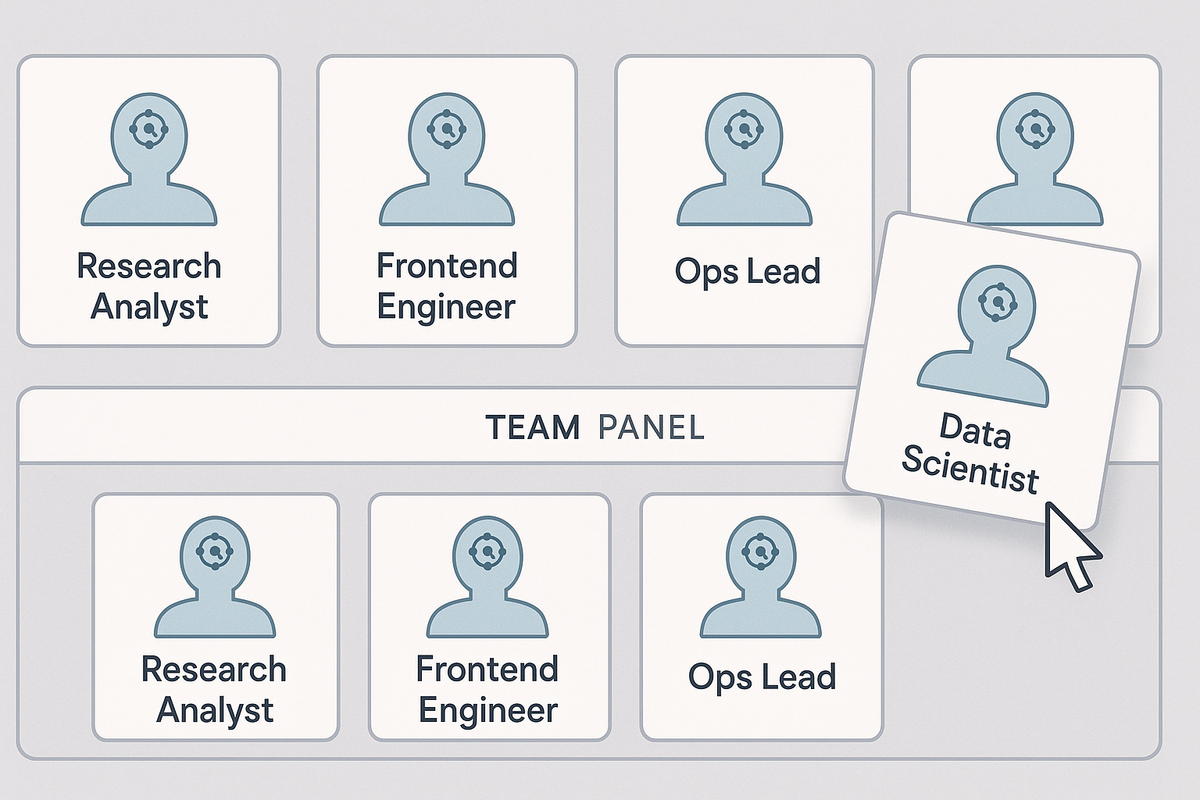Managing in the Age of Agentic Workforces

Historically, the main constraint on software teams has been their ability to ship software. Teams could start with extremely ambitious missions that translated into clear visions of the future. They'd set roadmaps and goals managed by layers of managers, and then individuals on the team would translate those ideas, visions, and direction into something tangible that delivered value to customers.
But in the age of AI agents, I don't believe this is the constraint anymore.
I've been using Claude Code's new subagents feature quite a bit lately. For me, it feels like the ChatGPT moment for agents — creating a multi-agent system that can operate on complex tasks autonomously no longer requires tremendous amounts of custom software. You can literally create one with a few markdown files.
This shift perfectly illustrates what Andrew Ng calls the "Product Management Bottleneck". As he points out, "Because highly agentic coding accelerates the writing of software to a given product specification, deciding what to build is the new bottleneck."
The New Shape of Management
In this world where an agent can represent the persona or expertise of a specific type of employee, so much of the constraint becomes figuring out how to architect the optimal team for your project. And the words "architect" and "manage" are especially critical here.
Instead of a manager needing to hire a team, onboard them, and hope they'll be productive within the next few months, they can literally specify the shape of the team they need to deliver on an idea. The scope and role of management in this era is to:
- Define what the shape of that team is
- Create clear specifications and project plans
- Have the expertise to observe and intervene as work progresses
- Ensure everything heads in the right direction
What we've classically called the science of management becomes the bottleneck. Being able to effectively translate your idea into a specification, that specification into a team shape, define that team's work, manage the delivery, and ultimately execute — all of this can now be done by one enterprising individual with an orchestration layer for agents like Claude Code.
Convergence of Product and People Management
This brings us to an interesting convergence. As Ng notes in his piece on AI Product Managers, "Given a clear specification for what to build, AI is making the building itself much faster and cheaper. This will significantly increase demand for people who can come up with clear specs for valuable things to build."
But here's what I'm seeing: in the agent world, product management and people management are becoming the same discipline. When you're orchestrating agents, you're simultaneously:
- Deciding what to build (traditional PM work)
- Deciding who builds it (traditional people management)
- Designing how they work together (organizational design)
The traditional Engineer:PM ratio of 6:1 that Ng mentions? That's already obsolete when your "engineers" are agents that you can spin up instantly.
Questions for a New Era
This world brings up fascinating questions about the future. Do we need new Peter Drucker-style management books written specifically for managing agents? Or does all our prior art in behavioral science and management theory apply to this new world?
Does Andy Grove's definition of high output management — where "your measure of success is the output of your team and the teams around you" — map to what's required now?
Consider these very real management challenges I'm already facing with agents:
- How do you know whether an agent is succeeding when you're the one who programmed it?
- What does it mean to "fire" an agent if it's underperforming?
- How do you measure performance across different agent personas?
- When is it time to "hire" new agents or scale up certain agent types?
All the classical tasks that managers learn hands-on by working with humans will likely be greatly accelerated and run in more simulated environments.
The Learning Opportunity
Here's what excites me most: in addition to agent management being a new unlock for team productivity, it might also be the training ground for our next generation of leaders to learn how to manage humans too.
Of course, subservience, adherence, and work ethic manifest very differently in human versus agent workers. But the core skills — clarity of communication, system thinking, performance measurement, team composition — these translate.
There's still tremendous experimentation and research to be done. But whatever the result, I personally believe that learning how to be a manager in the age of AI agents is one of the most important skills to develop. As a current people manager, it's been eye-opening. But I think it's one of the biggest, most leveraged opportunities for people earlier in their career to create differentiation as they enter the workforce.
Embracing the Shift
The key insight from Ng's work that resonates with my experience is that "PMs with high user empathy can make decisions by gut and get them right a lot of the time." In the agent world, this translates to having high "agent empathy" — understanding what your artificial team members can and can't do, and making rapid decisions about how to deploy them.
We're not trying to replace human creativity or judgment, merely amplify it. When I can prototype an idea with a team of agents in hours instead of months, I can test more hypotheses, explore more possibilities, and ultimately deliver more value.
The future isn't about humans versus agents. It's about humans orchestrating agents to achieve things we never could before. And that's a future worth managing toward.
